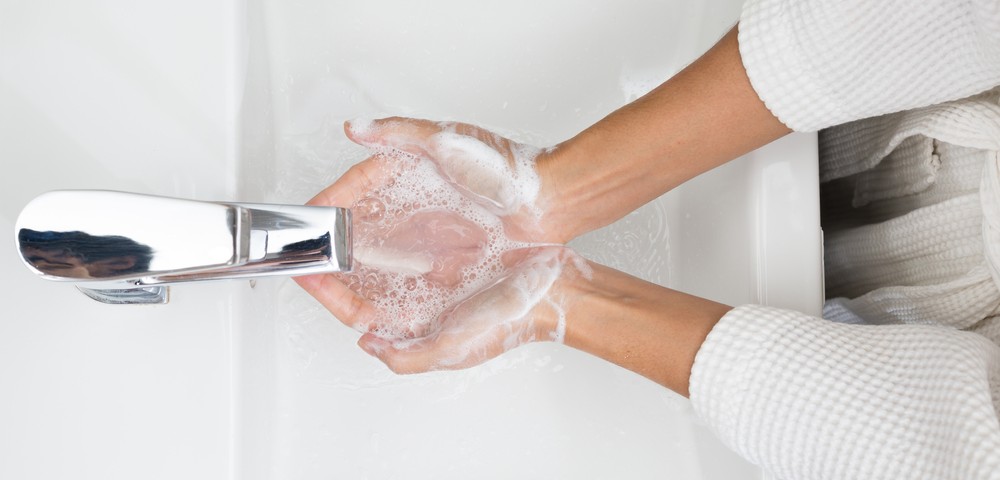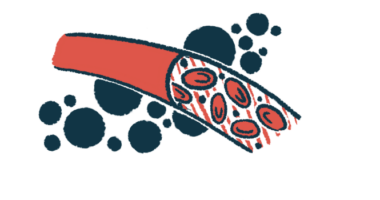Tips for Dealing with Coronavirus: Be Practical and Don’t Panic

Since no one is talking about it, I decided to write about the new coronavirus. And yes, I am being facetious. I have also laughed at some of the memes circulating on social media. Two of my favorites are the panic room filled with toilet paper and a person on a street corner selling hand sanitizer from their coat pockets.
While I’m reaching for humor, I am very worried about this virus because my son is a heart and double-lung transplant recipient and highly immunocompromised. However, this fear is not new to me. I’ve been on germ patrol since my son was diagnosed with pulmonary hypertension 10 years ago.
I’ve approached this health threat as I have all of the others: with reasonable caution, self-advocacy, education, instinct, and humor.
In a previous column, I discussed the healing benefits of laughter. It can’t cure a disease or protect you from a virus, but it is a way to reduce the panic they can cause. I completely understand how anxious you might feel listening to the daily news about the coronavirus. It might be like how I felt when I was told about my son’s condition and I went home and searched “pulmonary hypertension.” Before allowing panic to set in, take a dose of laughter, and consider the following tips.
Don’t just watch the daily news or rely on a random source that you found online or read on social media. Dwelling on the statistics is not in your best interest. The most valuable information source is one that helps you establish a clearer understanding of what you are dealing with and how to best protect your loved ones and yourself.
All you need to know can be found on hospital websites. For example, Stanford Health Care offers a lot of information. If you are looking for a source that focuses primarily on your rare disease, then look no further than Pulmonary Hypertension News. This BioNews Services site is one of many platforms that provide current and trusted information about rare diseases, and it’s a safe place to share experiences and express concerns.
I want to take a moment to raise awareness and address the readers who do not have PH or another serious disease. Since the coronavirus outbreak, have you been washing your hands more frequently and thoroughly? Are you more aware of your surroundings and how sanitary they are? Do you quickly move away from people who are sneezing or coughing? Have you declined attending events with large crowds? Do you wear a mask when you venture outdoors?
If your answer is “yes” to any of these, then you have a better understanding of what it is like to live with PH and try to maintain health post-transplant. To my son and our family, all the above measures are reasonable, cautious behavior and part of what it means to self-advocate.
However, the coronavirus has challenged us to extend our caution even further. This is where I think people are walking a fine line between humor and judgment. It’s OK to crack a joke or two, but don’t make it personal, or worse, political. It’s not acceptable to downplay the concerns of others or express anger and frustration toward those taking precautions that you deem unnecessary. Do what you need to and let others rely on their instincts and individual needs. Spread understanding and not discontent.
I live in Washington state, where the virus has hit hard. My “healthy” son’s place of employment shares a parking lot with a newly opened quarantine hotel, and his college has had a virus scare. It’s fair to say that the threat has come too close for comfort.
For this reason, we have bumped our caution up a notch. My son with a compromised immune system has safely completed this semester but has decided not to register for the next one. He is researching online college courses to take until the risk of exposure reduces.
If any of us venture out, we shower and change our clothes the moment we return home. Instead of doing our food shopping at the supermarket, we are taking advantage of the home delivery option. We have also opted out of social events, at least until the virus is better contained.
We have made these decisions not out of panic, but the opposite, as a preventive measure. The fewer risks we take, the less anxious we feel, and the more we can laugh at funny memes such as, “In 2020 we thought we’d have flying cars … but no, here we are teaching people how to wash their hands.”
Be practical and don’t panic — old-fashioned soap and water is a good start.
***
Note: Pulmonary Hypertension News is strictly a news and information website about the disease. It does not provide medical advice, diagnosis, or treatment. This content is not intended to be a substitute for professional medical advice, diagnosis, or treatment. Always seek the advice of your physician or other qualified health provider with any questions you may have regarding a medical condition. Never disregard professional medical advice or delay in seeking it because of something you have read on this website. The opinions expressed in this column are not those of Pulmonary Hypertension News or its parent company, BioNews Services, and are intended to spark discussion about issues pertaining to pulmonary hypertension.








Comments
Jacqueline
Thank you for this post. My middle son was diagnosed in July with PH/PVOD, but my oldest son has been immune compromised for nearly 10 years, so much of what has been widely suggested for avoiding this virus, we routinely do. I'd like to thank you for the reminder about the comfort zones of others. I'm frustrated with the hoarding, particularly of masks and toilet paper. However, you reminded me that each of us has our coping strategies and caution measures. The virus numbers and updates paint a bleak picture of what our lives could look like over the next month, a life many of us haven't experienced before. We cling to what is familiar. I'll try to be more understanding. Be well.
Vanessa Vaile
Nobody talking about it? Not my impression, although overall coverage in PH media has been less substantial than I would have expected.
Granted I may be more of news and information junkie than most, but my news feeds and inbox are overflowing. I've set up new folders for covid-19 in inboxes and feed reader. The pandemic has deeply affected all my interest, research and project areas. The expression "all you need to know can be found on..." is anathema to any researcher.
fwiw colleges and universities that shut down campuses-- including WA -- have moved courses online in response to the shut down. I've taught online since late 90's and have oodles of online learning links -- including for higher ed in the time of covid19. Happy to share -- just ask.